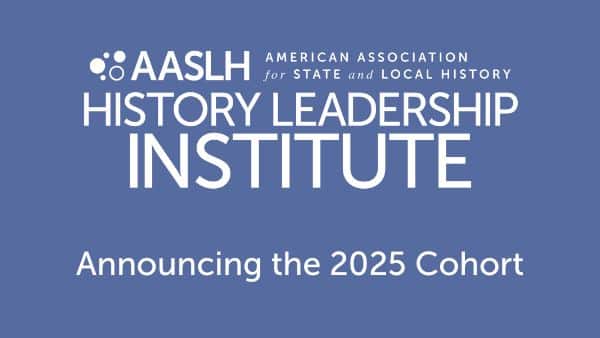
Photos courtesy of Monticello/Tom Daly.
By Melanie Bowyer, Manager of Digital Media and Strategy at Monticello, Charlottesville, VA, and AASLH Educators and Interpreters Committee
The Monticello Teacher Institute (MTI) is an immersive professional development program for teachers at Thomas Jefferson’s Monticello, a historic house museum in Charlottesville, Virginia. Over the span of a week, roughly fifteen to twenty teachers participate in a professional development program that includes special tours of Monticello, field trips to local sites like the University of Virginia, research at the Jefferson Library that culminates in a completed project, great meals (including a trip to Michie Tavern, a local favorite!), and camaraderie with fellow educators. We repeat this program twice each summer, welcoming about 30-40 teachers a year.
As a co-leader of the program, I can confidently say that MTI is one of the highlights of our year in the Education and Visitor Programs Department at Monticello. In 2020, due to COVID-19, we were unable to conduct MTI onsite. Like many other institutions, we decided to shift MTI to an online model for the roughly forty teachers who were accepted into the program pre-COVID. We took three of our more popular sessions, including a newly launched live virtual tour of Monticello, and offered them to the handful of teachers who opted to spend more time online after a long year of mostly virtual school. It worked well for what we could do then, but wasn’t the same as the onsite, in person program.

As museum educators, my colleagues and I realize the importance of the concept of “power of place”—how physically being in a space can help foster connections to and drive home the importance of a museum or historic site. This is a key element of MTI, and one that is hard to replicate online. Therefore, in 2021, we endeavored to bring the program back onsite.
We had decided in 2020 to defer acceptances to 2021, so the teachers who were accepted in 2020 were guaranteed spots in 2021. In early 2021, with vaccines becoming widely available, we reached out to the teachers to gauge their comfort in coming for an onsite program. Overwhelmingly, most of the teachers said they wanted to come onsite for MTI, so we made the call in early April to proceed with the onsite summer programs.
What would onsite programming look like over a year into the pandemic?
While Monticello had been open to the public since June of 2020, we hadn’t hosted onsite events or special programs since early 2020. What needed to change to provide a safe and welcoming environment for our teachers?

We cut the program from six days to five days. When we did a thorough review of our itinerary for the week, we found ways to trim or make better use of time in a way that didn’t impact the overall quality of the program.
We had to completely rethink other aspects of the program. For instance, the housing that we normally booked for teachers through the local university, was unavailable for booking in 2021 due to COVID. We worked with a local hotel to provide rooms for the week, which increased our housing costs, but thankfully our unused funding from 2020 had rolled over. We were also unable to take the teachers on a couple of the previously planned field trips due to COVID closures. While we missed these opportunities, we recognized that what we thought they were missing might not matter as much to the teachers as we thought it did.

We had to think differently about how we were going to handle logistics and how we would structure programming to meet current Monticello safety protocols. When MTI occurred in July, Monticello had a face covering policy for all visitors. Luckily, we had classroom space for work sessions where teachers could socially distance. We also required teachers to wear face coverings while indoors and asked each teacher to acknowledge that they would comply with all COVID safety protocols. We planned tours of the property to be outdoors as much as possible and were able to have a couple of private tours that allowed us to keep the number of people in a space down. Overall, we were very pleased with the relative smoothness of the onsite program this summer.

While COVID halted many offerings in 2020 and brought about some changes to our programming in 2021, I’m glad we took the opportunity to rethink some things we had been doing for years and try some new ideas. We learned some things in the process, and will be taking some of the changes we made into programming in 2022. One key takeaway for us was that teachers were thrilled to be back onsite for professional development programming, and we in turn were thrilled to welcome them back!
Learn more about AASLH’s Educators and Interpreters Affinity Community here.



